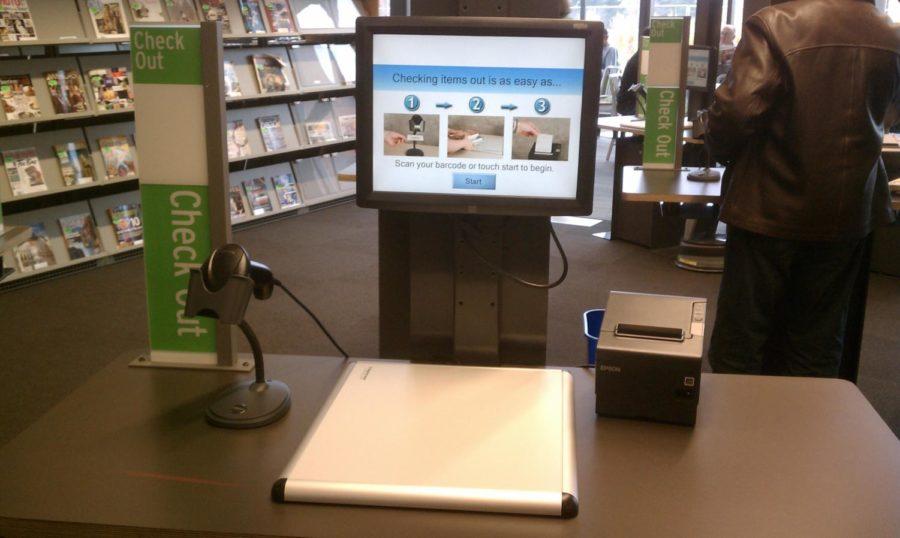Cummings: Hello technology, goodbye jobs
According to a market study conducted in Virginia, about 84 percent of those surveyed said they needed help when using the self-checkout, and 60 percent said they prefer the regular, employee-based checkout stations.
January 29, 2014
In a situation akin to classic sci-fi novels, the American people are experiencing more and more the loss of their jobs to technology.
Though the need for certain jobs has been erased since the industrial age revolutionized the speed and accuracy with which we could manufacture, machines are continuing to replace the need for humans in the workplace even today.
Just last month, Applebee’s announced its plans to put tablets at the tables of more than 1,800 locations this year. Mike Archer, president at Applebee’s, suggests that the tablets will be used to make the payment process easier and faster for customers. And Applebee’s isn’t the only food chain who has made the leap to provide a technologic dining experience; Chili’s and other restaurants have announced or have expressed interest in the same program.
Naturally, the public was concerned about their jobs. Though Applebee’s assures them that they won’t be replacing any of their staff with this technology, the tablets’ ability to handle payment and eventually ordering leaves little for waiters and waitresses to do.
However, incorporating tablets into the restaurant experience is merely one of the ways in which technology is rendering humans unnecessary. Grocery stores are just one of the businesses that have been utilizing the self-checkout system for years now at an attempt to help eliminate lines and waiting by offering a more effective experience.
But are these systems really more convenient? One study suggests that self-checkout stations might not be providing the easy shopping experience businesses had hoped for but might in fact be pushing customers away. According to the article, about 84 percent of those surveyed said they needed help when using the self-checkout, and 60 percent said they prefer the regular, employee-based checkout stations.
And while store owners may also argue that their use of self-checkout stations simply provides an alternate opportunity for shoppers and in no way affects the job security of their employees, the space taken up by a self-checkout could have been used as a station for another employee.
Herein lies the bulk of the issue. With an increasing number of businesses turning to technology to run its day-to-day operations, the number of jobs available for people has gone down. With the frail economy, it makes sense that business owners would seek out the cheapest means of production and operation, but where does that leave the people they’re replacing?
This past December was the weakest month for job growth since January 2011, CNN claims. But while economists are attempting to chalk it up to a fluke, the statistics also say that only 62.8 percent of adults are in the job force now — the lowest level since 1978. Prospects do not seem good for eager job hunters.
There appears to be a trend in the technology boom, too. According to the Associated Press, half of the 7.5 million jobs lost during the recession were middle wage jobs. At least two-thirds of those were replaced by technology.
There is certainly an argument that believes technology still demands the need for human-based jobs because someone will always need to be there to fix the machine. However, the skills and education required to fix those machines often times exceeds that required by the job the machine is now doing. And with the lower availability of jobs comes the lower availability of money to pay for said education. The population seems to be in a bit of a dilemma.
The country and our way of life is advancing. The inventions of new technologies have definitely helped society grow in the past. The invention of the car may have eliminated the need for carriage drivers, but did create the need for new jobs, such as taxi drivers and mechanics. What’s important is that there is a balance between technology helping humans to complete a task more efficiently and erasing the need for humans entirely.
Financially, using technology instead of humans makes sense. However, it can be too easy for companies and corporations to get so caught up in making more money, that they forget there are people out there who truly depend on that paycheck. There is a place for technology in every workplace, but it should never take the place of a human working.







